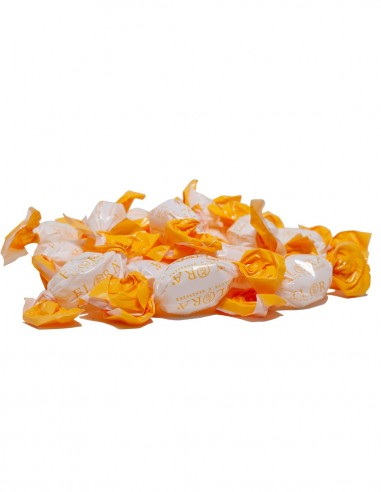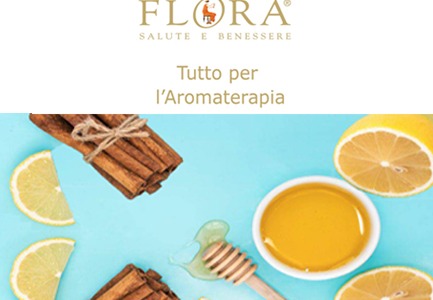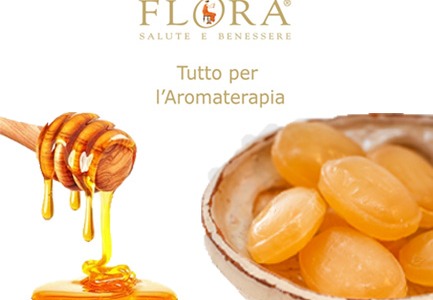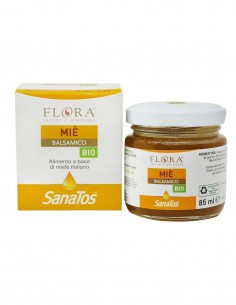Singers' Sweets have a pleasant, balsam outer shell with 100% pure essential oils, propolis, and a honey centre with hedge mustard, echinacea and mullein. Singers' Sweets are a tasty, fresh, balsam treat for immediate and valuable benefit to the vocal cords, throat and breath.
The essential oils contained in Singers' Sweets have been carefully selected for their broad-range of purifying properties, as well as for their use in folk and traditional medicine in cases of cooling problems. In addition, the blend has been created to give the product a pleasant, aromatic note.
SWEET, FRESH BALSAM PLEASURE
- Properties
- Sweet, fresh and balsamic
- Form
- 5 kg
- Does not contain
- Preservatives, dyes, synthetic substances
8019359015117
Sugar, glucose, wildflower honey (14.66%), hedge mustard (Sisymbrium officinale, aerial parts, MT 0.08%), echinacea (Echinacea purpurea roots, MT 0.08%), mullein (Verbascum thapsus, aerial parts, MT 0.08%), propolis (Propolis resin, alcoholic extract 0.01%) and food flavoring: 100% pure essential oils of Demeter lemon** (Citrus limon, fruit, EO.), Demeter sweet orange** (Citrus aurantium var. dulcis, fruit, EO), mandarin* (Citrus reticulata fruits, EO), eucalyptus (Eucalyptus globulus leaves, EO), Demeter peppermint** (Mentha x piperita, the whole plant, EO), field mint* (Mentha x piperita, the whole plant, EO) and Scotch fir* (Pinus sylvestris, tops and needles, EO). Ingredients are sourced from controlled organic* and Demeter biodynamic** farms.
Did you know that…
Honey: For many centuries it has been used as a highly nutritional food; in recent years, ancient ways of using it are being rediscovered. In fact very ancient documents present honey as a powerful medicine. As early as 2000 BC there is evidence of honey being used as a medicine for external use. In the ‘Ebers Papyrus,’ dated 1550 BC, honey was used for many preparations, including those for eye health, for application to wounds and abscesses, and even following surgery (such as circumcision). Even the 'Surgical Papyrus,’ a papyrus on Egyptian medicine, mentions the use of honey as a wound dressing. In general, its use is found in all cultures where it is traditionally used for external use, but also for throat, respiratory and intestinal disorders.
Hedge mustard extract: the term erysimum comes from Greek, and literally means 'save the song.' This tells us that it has been known since ancient times for its beneficial effects on the throat and vocal chords, as well as in all situations of aphonia and hoarseness; these properties have earned it the common name still in use today: "Singers' Herb." As early as the Renaissance there is confirmation of the efficacy of this herb; it was not until the 16th Century that the botanist Jacques Daléchamps, a French physician and naturalist, officially classified it in his ‘Historia Generalis Plantarum’ as the plant of orators, preachers, actors, teachers and singers. It is also used in Italy; the ‘Supplement to the Health Dictionary,’ dated 1784, praises its effect in cases of hoarseness, and a popular recipe, dating back to 1892, mentions it as a useful medicine in cases of aphonia.
Echinacea extract: was already used by Native Americans and North American shamans for its many properties. It was considered to be a magic herb because it was used to treat wounds, burns, snake and scorpion bites, sore throats, and all colds. The traditional use of echinacea in the prevention of colds was gradually consolidated first in America (in the early 1900s it was one of the best-selling cold and flu medicines), and then in Europe, mainly in Germany, where it was known to 'switch off' cold and flu symptoms if taken early.
Mullein extract: In folk medicine, it was customary to prepare an infusion of the flowers of this plant (commonly known as the yew tree) for dry, hacking coughs while a coction of the leaves was used for oily coughs. More frequently, herbal tea was prepared from the aerial parts of the plant for coughs and colds.
Propolis extract: the name propolis derives from the Greek πρόπολις, composed of πρό (pro) in front of, and πόλις (polis) city, i.e. in front of the city; this word, figuratively speaking, takes on the meaning: defender of the city. The term was used by Aristotle and Pliny the Elder in ‘Naturalis Historia’ to refer to the resin processed by bees, who use it to defend their city (the hive) from dangers such as disease and predators. Propolis is one of the oldest used natural substances. As early as ancient Egypt, it was used for mummification (often referred to by the generic name of resin). In Ancient Greece (in the times of Aristotle, Galen of Pergamom and finally the Persian Avicenna), it was used externally as a healing agent for wounds or sores. The use of propolis is widely documented among numerous cultures around the world. The Incas used it to treat febrile illnesses, while in Russia it was a remedy for all problems of the oral cavity, used in cases of caries and inflammation. Propolis was one of the remedies of choice until the 18th Century, when it was used to treat respiratory inflammation, but also sores, insect bites, etc. It then fell into disuse, but has regained its value in the herbalism as a valid adjuvant to promote the functioning of the respiratory tract.
- Contains 100% pure, complete and natural essential oils of lemon (Citrus limon), sweet orange (Citrus aurantium var. dulcis), mandarin (Citrus reticulata), eucalyptus (Eucalyptus globulus), peppermint (Mentha x piperita), Scotch fir (Pinus sylvestris), wild thyme (Thymus serpyllum), lavender (Lavandula hybrida and officinalis), cajeput (Melaleuca leucadendron var. cajaputi), tea tree (Melaleuca alternifolia), chamomile (Matricaria recutita).
- Contains hydro-alcoholic extracts of echinacea, mullein and hedge mustard
- Contains a fine filling of Italian wildflower honey and propolis
- Pleasant sugar outer-shell
Average values for 100 g
- ENERGY 1672 KJ / 393 Kcal
- FATS 0 g
- of which saturated fatty acids 0 g
- CARBOHYDRATES 98 g
- of which sugars 91 g
- PROTEIN 0 g
- SALT <0.01
The salt content is due exclusively to the naturally contained sodium.
No reviews































